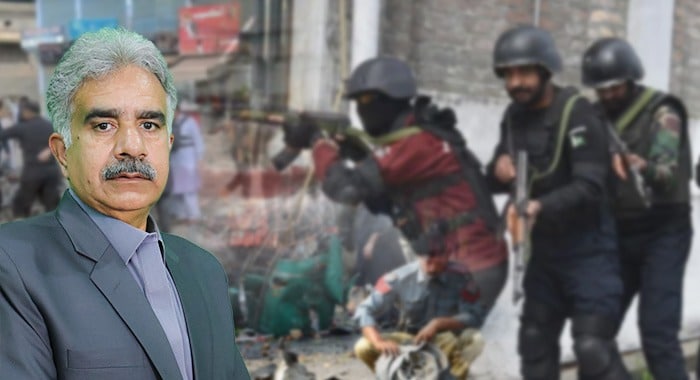Zahir Shah Sherazi
Khyber Pakhtunkhwa (KP), once hailed for its resilience, now finds itself reeling under a resurgence of terrorism, deteriorating law and order, and a mounting governance vacuum. The gravity of the situation is no longer a matter of isolated incidents it is systemic, persistent, and deeply alarming. Amid targeted killings, border infiltration’s, and sophisticated assaults on security personnel, the province stands at a dangerous crossroads, where the question is not just about countering terror but about the very writ of the state.
At the heart of this crisis lies a critical issue: the capacity of the KP police. Despite being the front line force in Pakistan’s decades-long war against terrorism, the provincial police remain under-equipped and under trained to confront modern day threats. The enemy no longer wields crude weaponry terrorists now operate with U.S.-grade arms, including laser guns and Category 50 rifles, allegedly left behind in Afghanistan. Yet, KP’s police are still expected to maintain order with conventional tools and little to no technological support. Night-vision goggles, fortified check posts, and advanced surveillance systems remain scarce.
This mismatch between threat and response is not just a tactical failure it’s a policy collapse. Police visibility, once considered a deterrent, has turned into vulnerability. The recent martyrdom’s of officers in Swat, killed in targeted attacks using laser-guided weapons, have underscored just how exposed our security personnel are.
The failure, however, is not solely institutional it is also deeply political. The rift between the provincial and federal governments has become more than a political blame game; it’s now a barrier to coordinated security responses. While the KP government claims it has not received its due share from the NFC Award and hydel profits, the federal government insists that funds were allocated. Lost in this tug-of-war is the simple truth: without adequate resources, the province cannot secure its borders or its people.
As security worsens, the economic consequences are becoming equally dire. Nearly 70% of industrialists and business owners have reportedly left the province due to rampant insecurity. Extortion, kidnappings, and street crimes have surged. Capital is fleeing, and with it, jobs, investment, and any hope of recovery.
Governance, too, is in disarray. Reports of corruption from bribes in educational institutions to embezzlement of development funds in Kohistan are not just bureaucratic failures; they are symptoms of a system unravelling. Despite claims of a “Riyasat-e-Madina” model, the reality on the ground is one of mismanagement and neglect. Even in the tragic aftermath of police martyrdom’s, senior leadership often fails to extend moral support to the bereaved families—dealing a further blow to the morale of those still on the front lines.
Perhaps most distressing is the politicisation of security and development. Over 90 developmental schemes in KP remain stalled due to political clashes between the centre and the province. This is not merely poor coordination it is a governance failure with life-and-death consequences.
Can KP manage its security challenges alone? The answer is a resounding no. The province’s security crisis is intertwined with fiscal dependency, political fragmentation, and a lack of strategic clarity. Without federal support, meaningful reforms in governance, and urgent modernisation of the police force, KP’s spiral into lawlessness will only deepen.
The road ahead demands more than promises. It requires political maturity, consensus-driven policy making, and unwavering commitment to equip and empower those tasked with defending the province. The cost of inaction is already being measured in lives lost, businesses shuttered, and a region slipping into instability. The time for coordinated, courageous leadership is now—before KP’s security crisis becomes a national catastrophe.





